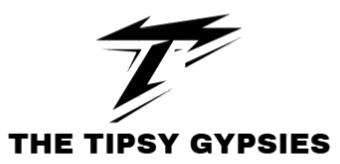Fapello is a network of adult content websites that collect and share media, often copied from paid platforms without permission. While it looks like a free and simple way to watch adult videos or images, it raises major concerns about copyright, privacy, safety, and consent.
Understanding Fapello
Fapello is not one official app or brand. Instead, it is a cluster of mirror websites that share the same name and format. When one domain is blocked, another pops up. This makes Fapello less like a stable platform and more like an ecosystem of copycat sites that operate in the shadows of the adult industry.
The concept appeals to users because it looks like a free version of subscription-based services. But behind the interface, much of the content has been reposted without permission, which creates legal and ethical challenges.
How Fapello Typically Works
Aggregated Content
At its core, Fapello is an aggregator. It collects adult content from multiple sources, often subscription platforms where creators originally shared material behind paywalls. This redistribution deprives creators of income and exposes intimate content to people who were never meant to see it.
Mirror Domains
One defining trait of Fapello is the use of mirrors. These are identical copies hosted under different domain names. Some versions of Fapello are hosted on the .su domain, a legacy domain from the Soviet Union era that remains active today and is often used to avoid strict takedown rules. Because .su has weaker enforcement history, operators use it to avoid takedowns and extend site longevity.
Revenue and Ads
Since Fapello does not rely on subscriptions, it depends on traffic-driven advertising. This usually means a high volume of pop-ups, redirects, and potentially unsafe ads. The environment may seem free, but users pay indirectly with exposure to malware, fraud, and data tracking.
The Legal Landscape Around Fapello
Copyright Issues
Redistributing copyrighted adult content without permission is illegal in most jurisdictions. The DMCA (Digital Millennium Copyright Act) provides a path for rights holders to issue takedown notices. Although many Fapello mirrors include a DMCA page, compliance varies and is often inconsistent.
Nonconsensual Content
Beyond copyright, there is the matter of consent. Many images and videos circulating on mirrors like Fapello may be intimate leaks, which is not only unethical but also illegal. In May 2025, the United States enacted the Take It Down Act, a federal law that makes it a crime to share nonconsensual intimate images, whether real or AI-generated. It also forces platforms to remove flagged content within 48 hours.
User Liability
Viewing content on Fapello is not necessarily illegal, but uploading or sharing nonconsensual or copyrighted content can expose users to liability. Knowing participation in distribution, even through re-uploading links, can result in legal consequences.
The Risks of Using Fapello
Security Risks
Fapello mirrors are heavily monetized through third-party ads. Malvertising malicious advertising hidden in banners or pop-ups is a frequent risk. These can install malware or redirect users to phishing pages. Adult and piracy sites are historically among the highest-risk categories for such attacks.
Fraud and Payment Traps
While most mirrors are free, some lure users into fake subscriptions or premium “unlock” offers. These can capture credit card information or personal data. Studies on piracy ecosystems show a strong link between fraudulent charges and the use of unverified adult content sites.
Data Privacy Concerns
Mirrors often load trackers and cookies. With ownership obscured and little accountability, there is no guarantee about how browsing data is stored or sold. Even if a privacy policy exists, it may be meaningless in practice.
Ethical Dimensions of Fapello
Consent and Harm
One of the most pressing issues around Fapello is the likely presence of leaked or stolen content. Watching such material may feel distant to the viewer, but it directly harms creators whose privacy has been violated. It also deprives legitimate performers of the income they earn on verified platforms.
Supporting Creators
There is an important distinction between free, pirated platforms and legitimate adult platforms. Services like OnlyFans or Fansly connect creators directly to their audience, ensure payments are secure, and enforce copyright takedowns. Choosing Fapello over these alternatives undermines the creator economy and perpetuates exploitation.
What to Do If Your Content Appears on Fapello
Document Evidence
Take screenshots, record URLs, and keep timestamps. This evidence is crucial when filing takedown notices or escalating through legal channels.
File DMCA Takedowns
Use the DMCA framework to demand removal from the site, its hosting provider, and even from search engines that index the links. Persistence is necessary, since mirrors reappear quickly.
Use Platform Protections
If your content was stolen from a subscription platform, use the platform’s enforcement process. For example, OnlyFans provides DMCA takedown support for creators.
Invoke Federal Protections
If the material is intimate and shared without consent, cite the Take It Down Act. This law forces covered platforms to remove content within 48 hours and carries penalties for noncompliance.
Consider Professional Services
Some firms monitor and remove leaked content across mirrors. While no service can guarantee total removal, professionals can manage the process at scale, giving victims relief from constant monitoring.
Safer and Ethical Alternatives
For viewers, the most responsible choice is to support verified adult platforms. These services verify identities, protect user data, and ensure creators are compensated. They also offer higher-quality content and stronger community guidelines.
For creators, these platforms offer protection, formal takedown processes, and an environment where their work is valued and respected. Unlike Fapello, they function within structured legal and ethical frameworks.
Conclusion
Fapello might look like a convenient way to access adult content, but beneath the surface it carries significant risks. It operates as a shifting network of mirrors, built on reposted material, often without consent. That reality brings legal consequences for distributors, cybersecurity threats for users, and emotional harm for creators.
If you value safety, privacy, and respect, the responsible path is to avoid Fapello and support creators directly on legitimate platforms. For those affected by leaks, acting quickly with documentation, takedown notices, and legal protections is essential.
In the end, adult content can be consumed ethically, safely, and responsibly. The choice lies in respecting consent, protecting privacy, and supporting creators where their voices are heard and their work is valued.
Frequently Asked Questions ( FAQs )
What is Fapello?
Fapello is a network of adult content websites that collect and repost videos and images, often taken from subscription-based platforms like OnlyFans. It works as an aggregator, meaning it does not create its own content but redistributes material uploaded by users, sometimes without the original creator’s permission.
Is Fapello legal to use?
Fapello itself operates in a legal gray area. Viewing content is not usually illegal, but uploading or sharing copyrighted or nonconsensual material is against the law in most countries. Since much of Fapello’s content is reposted without consent, it often raises legal and ethical issues for both operators and contributors.
Is Fapello safe for users?
Fapello mirrors are considered risky because they rely on advertising and pop-ups that may contain malware or phishing scams. Users also face privacy risks, as their browsing data may be tracked or sold. The lack of accountability behind these sites makes them unsafe compared to verified adult platforms.
What should creators do if their content appears on Fapello?
Creators should collect evidence such as screenshots and URLs, then file a DMCA takedown request with the site and its hosting provider. If the content is intimate and posted without consent, creators can also use protections under laws like the Take It Down Act, which requires platforms to remove flagged material within 48 hours.
Are there safer alternatives to Fapello?
Yes, safer and ethical alternatives include verified platforms like OnlyFans, Fansly, and other subscription services. These platforms protect user data, enforce copyright rules, and ensure creators are paid fairly for their work, unlike Fapello which often undermines creator rights.






